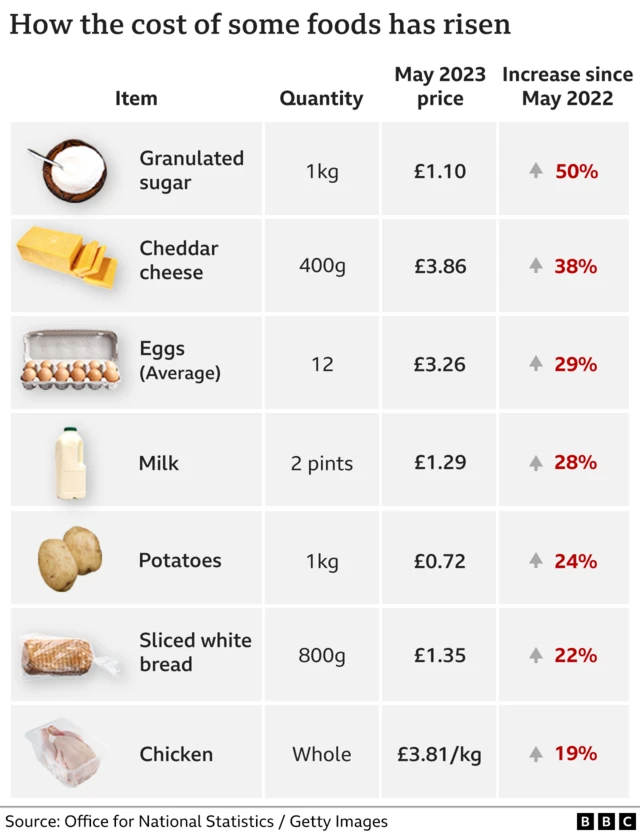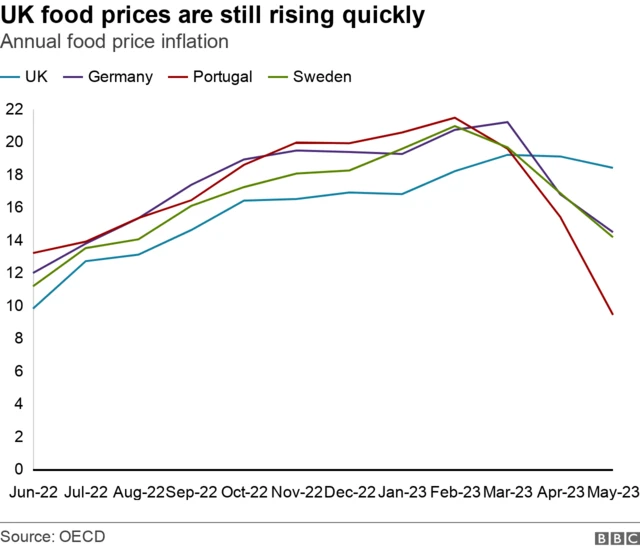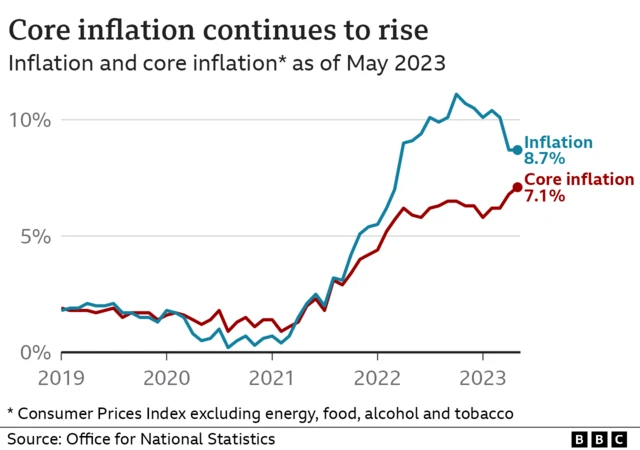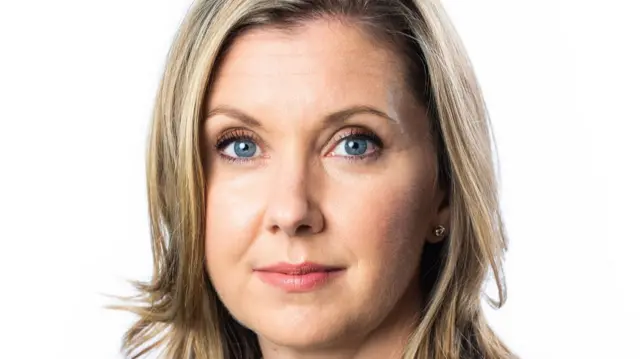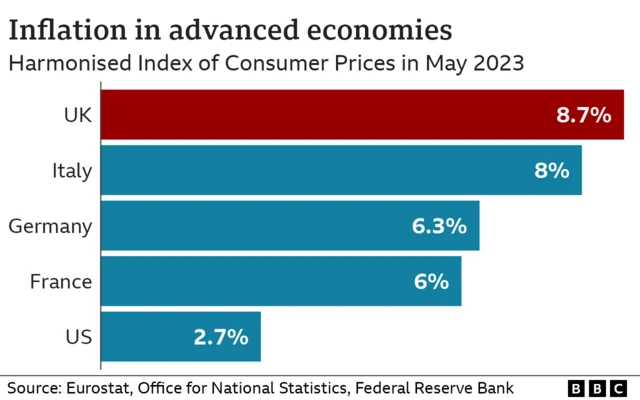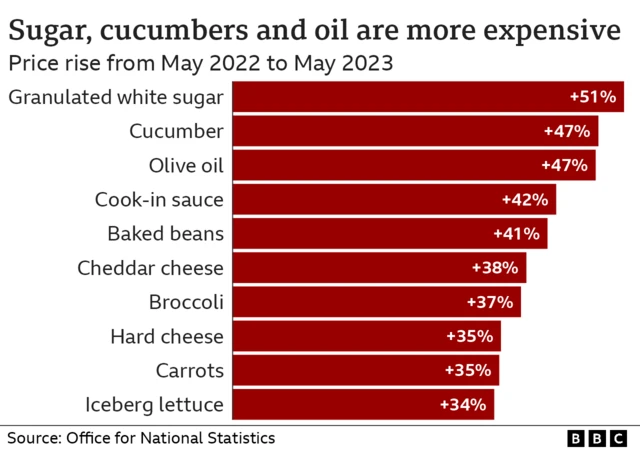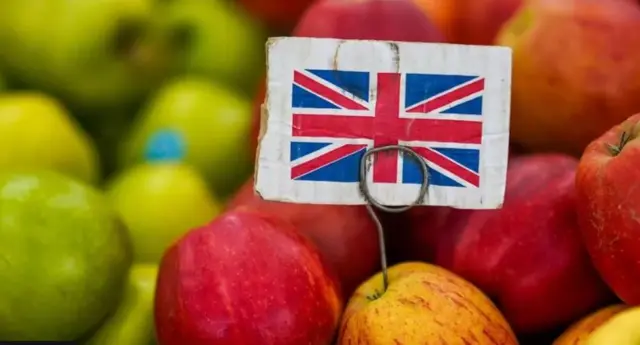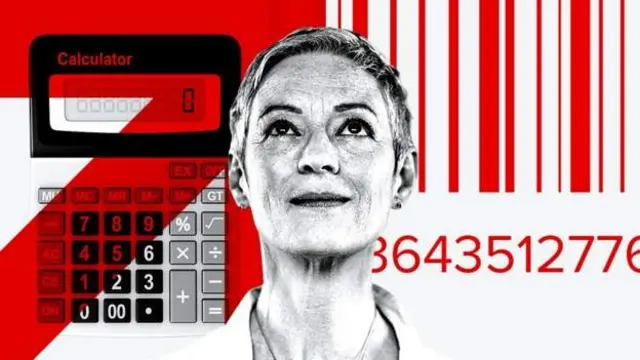Thanks for joining uspublished at 11:25 BST 21 June 2023
Thank you for joining our live coverage this morning, which is closing soon.
We'll be back tomorrow when the Bank of England is expected to increase interest rates - which has a knock-on effect on mortgage rates.
The writers on today's live page were Tom Espiner, James Gregory and James Harness. The page was edited by Emily McGarvey.
Read our main inflation story here.


